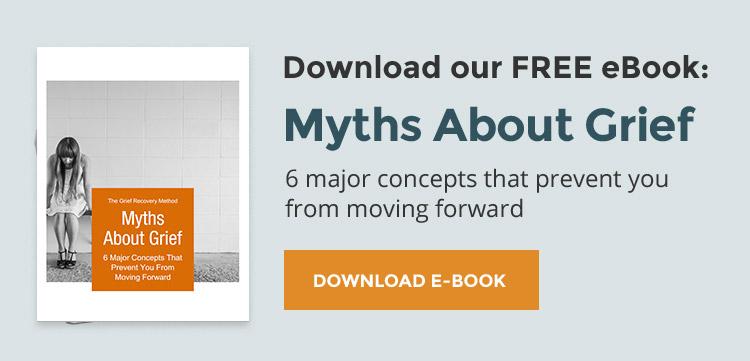Over time, we have identified six major myths that get in the way when dealing with grief and loss. The myths are so universal, that nearly everyone can relate to having absorbed them early in life, although they can’t always explain what they mean and whether or not they are true or helpful. You can read part 1 of this series by clicking here.
The six myths about grief are:
- Don’t Feel Bad
- Replace the Loss
- Grieve Alone
- Grief Just Takes Time
- Be Strong and Be Strong for Others
- Keep Busy
Replace the loss
Today we’re going to address the second myth about grief, Replace the Loss. For most children, the first time they hear that phrase is after a pet dies. What they commonly hear is, “Don’t Feel Bad, on Saturday we’ll get you a new dog”. If you look closely, you’ll notice that the first myth, Don’t Feel Bad acts as a preamble to the promise to get the child a new dog, as if Replacing the Loss could somehow diminish the pain and sadness caused by the death of the cherished pet. Rather than soothe or comfort the child in their grief, the combination of Don’t Feel Bad, and Replace the Loss, acts to confuse the child, and make him feel that being sad or feeling bad is not acceptable or appropriate. Worse, he’s led to believe that if he can just forget about the pet who died, and throw himself into a new relationship with a replacement pet, everything will be okay. But relationships are not replaceable like light bulbs. They cannot be replaced with the flick of a switch. Most of us don’t have emotional relationships with light bulbs or other inanimate objects, but we sure do have emotional connections to people and pets. By the time most children are five or six years old, they’ve already been introduced to the dangerous combination of of Don’t Feel Bad, and Replace the Loss when dealing with their grief.
The problem compounds in young adults when dealing with grief and loss
The problem then gets confirmed and compounded along the way towards adulthood. When a youngster has his or her first romantic ending, perhaps in the teen years, they’re told, “Don’t Feel Bad, There are Plenty of Fish in the Sea.” [If we can inject a little humor here—that’s usually the first time we learned that we’d been dating a fish.]
The damage it creates in adulthood
If you think the idea that Replace the Loss is unimportant or that it has limited impact of our lives, let us show you the damage it can create. Nearly everyone knows that the first marriage divorce rate hovers somewhere around 50 per cent. The vast majority of those marriages are to someone other than our first love, which means that we may have dragged some of the unfinished emotional baggage from that relationship into our eventual marriage. That alone creates a fertile ground for divorce. What most people don’t know is that the second marriage divorce rate is much higher, estimated to be 67%. And the third marriage divorce rate skies to 73%. Those statistics make it as clear as possible that Replace the Loss doesn’t work.
The bottom line
All relationships are unique, there are not exceptions. You cannot replace a relationship. You must grieve and complete your relationships to the person [or animal] who died;, or to the marriage or romance that ended. Until and unless you do that, you’re doomed to drag the past into your present and thereby sabotage your future.
Click here to go to the next entry in this blog series: Grieve Alone (Myth #3).
Click here to find a Certified Grief Recovery Specialist in your area.
Image credit: kristina888 / 123RF Stock Photo

























Add new comment